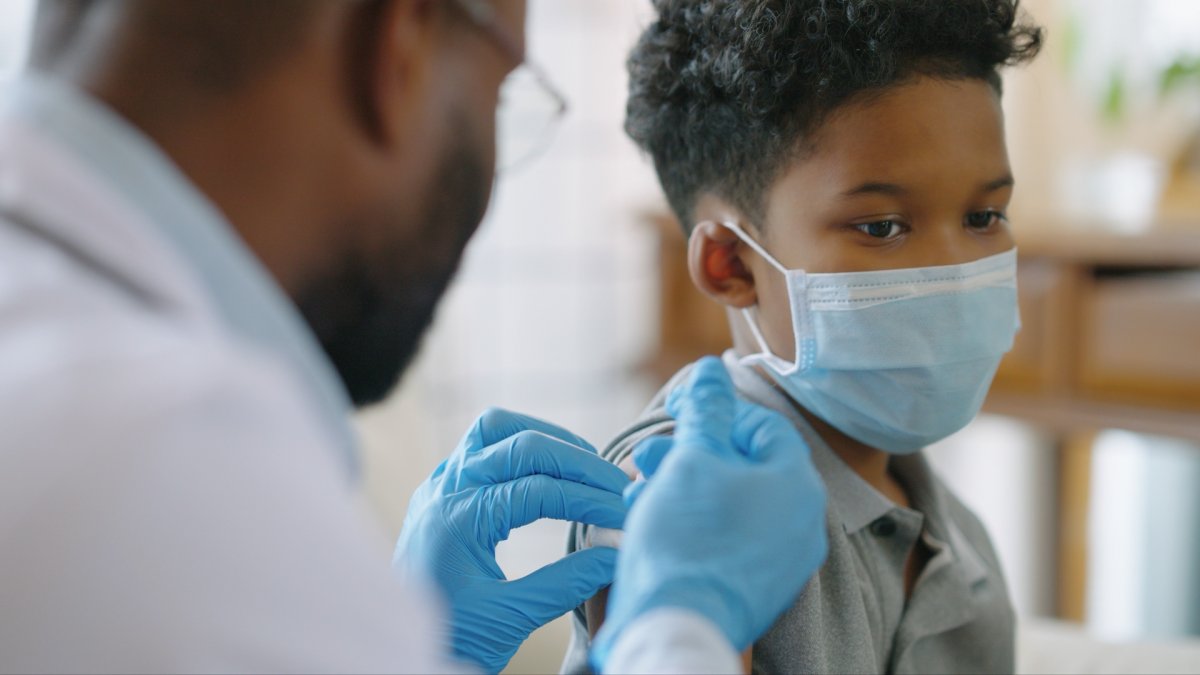
Children as young as 5 could soon be eligible for coronavirus vaccines as a panel of advisers for the Food and Drug Administration gave Pfizer’s child-size COVID vaccine its endorsement Tuesday, but there are still some steps that need to be taken.
Children as young as 5 could soon be eligible for coronavirus vaccines as a panel of advisers for the Food and Drug Administration gave Pfizer's child-size COVID vaccine its endorsement Tuesday, but there are still some steps that need to be taken.
Full-strength Pfizer shots already are recommended for anyone 12 or older, but pediatricians and many parents are anxiously awaiting protection for younger children to stem infections from the extra-contagious delta variant and help keep kids in school.
Tuesday's vote was the first step in a review process that will still require recommendations from the FDA itself and the Centers for Disease Control and Prevention.
If the FDA authorizes the shots, the CDC will make additional recommendations on who should receive them the first week of November.
Feeling out of the loop? We'll catch you up on the Chicago news you need to know. Sign up for the weekly Chicago Catch-Up newsletter here.
Children could begin vaccinations early next month -- with the first youngsters in line fully protected by Christmas.
Illinois Gov. J.B. Pritzker said final approval for vaccines in this age group could come in the middle of next week, clearing the way for the state to begin vaccinations.
"In just a few days time, millions of parents all across the United States should be able to breathe a sigh of relief that they've been holding in for over 18 months now," Pritzker said.
Federal health regulators said late Friday that child-size doses of Pfizer’s COVID-19 vaccine appear highly effective at preventing symptomatic infections in elementary school children and caused no unexpected safety issues.
In their analysis, FDA scientists concluded that in almost every scenario the vaccine's benefit for preventing hospitalizations and death from COVID-19 would outweigh any serious potential side effects in children. But agency reviewers stopped short of calling for Pfizer's shot to be authorized.
Most of the study data was collected in the U.S. during August and September, when the delta variant had become the dominant COVID-19 strain.
The FDA review found no new or unexpected side effects. Those that did occur mostly consisted of sore arms, fever or achiness.
However, FDA scientists noted that the study wasn't large enough to detect extremely rare side effects, including myocarditis, a type of heart inflammation that occasionally occurs after the second dose.
The agency used statistical modeling to try to predict how many hospitalizations and deaths from COVID-19 the vaccine would prevent versus the number of potential heart side effects it might cause. In four scenarios of the pandemic, the vaccine clearly prevented more hospitalizations than would be expected from the heart side effect. Only when virus cases were extremely low could the vaccine cause more hospitalizations than it would prevent. But overall, regulators concluded that the vaccine's protective benefits “would clearly outweigh" its risks.
While children run a lower risk of severe illness or death than older people, COVID-19 has killed more than 630 Americans 18 and under, according to the CDC. Nearly 6.2 million children have been infected with the coronavirus, more than 1.1 million in the last six weeks as the delta variant surged, the American Academy of Pediatrics says.
Doctors at Advocate Children's Hospital said last week that while cases in children tend to be less severe than those seen in adults, "more children are being hospitalized with severe COVID-19 infection than was seen earlier in the pandemic."
The group also warned that multiple cases of a life-threatening COVID-19-related condition called the pediatric multisystem inflammatory syndrome have been reported in the Chicago area and experts still don't know the long-term effects of COVID-19 on kids.